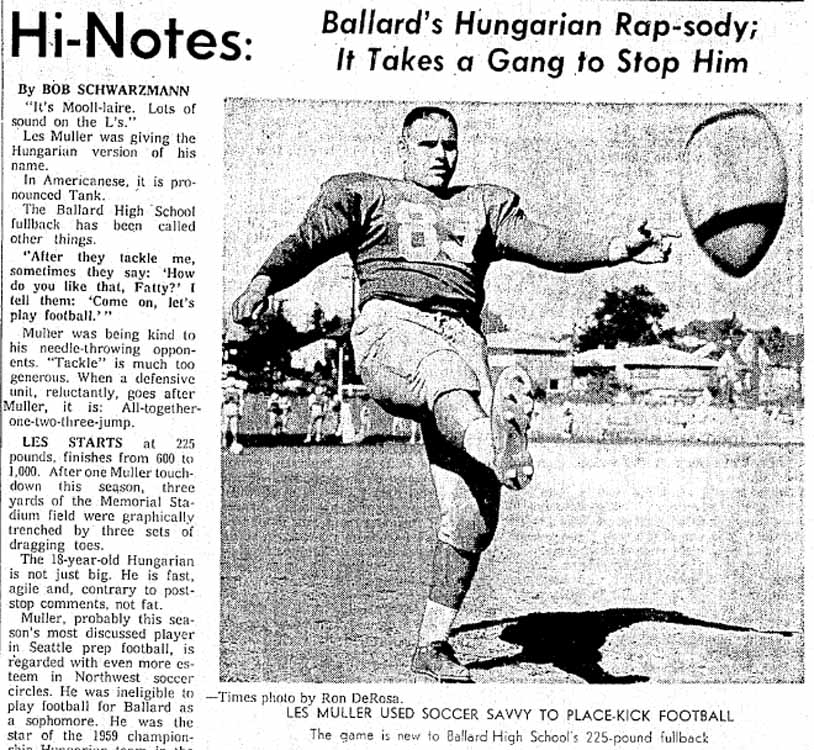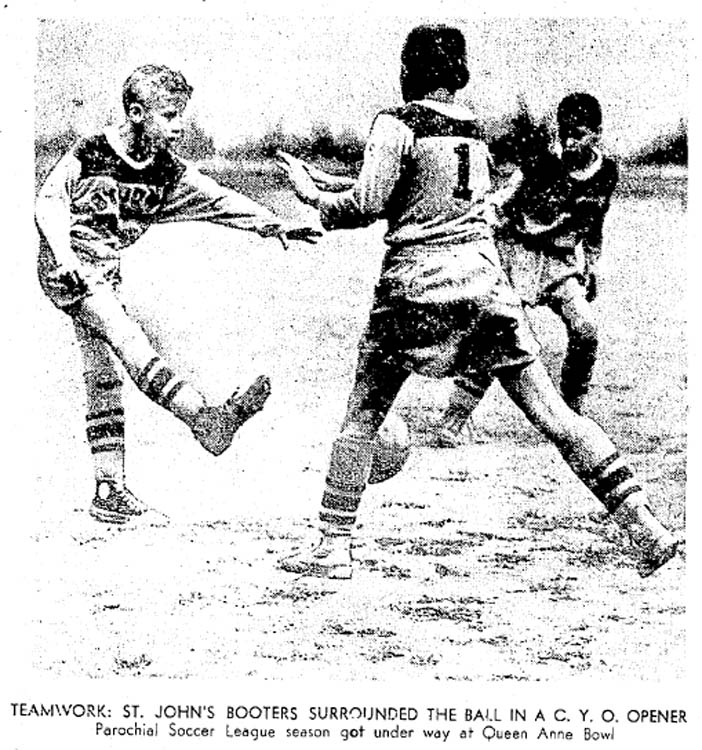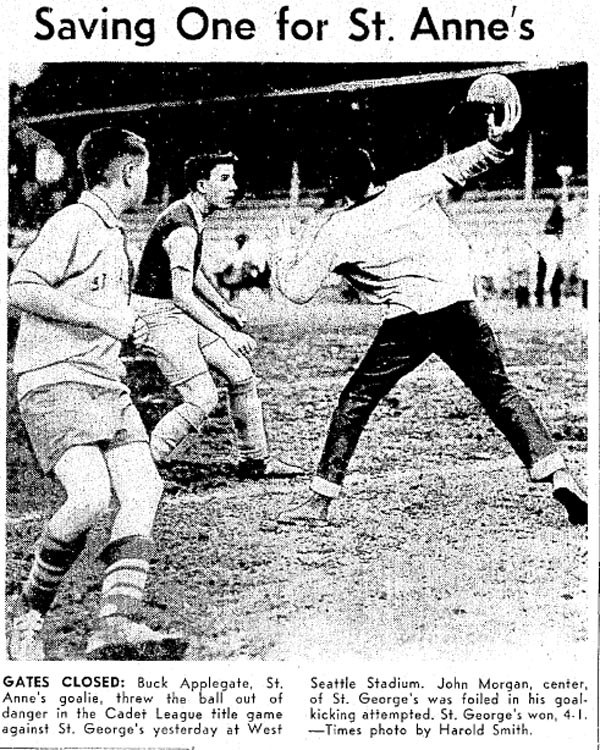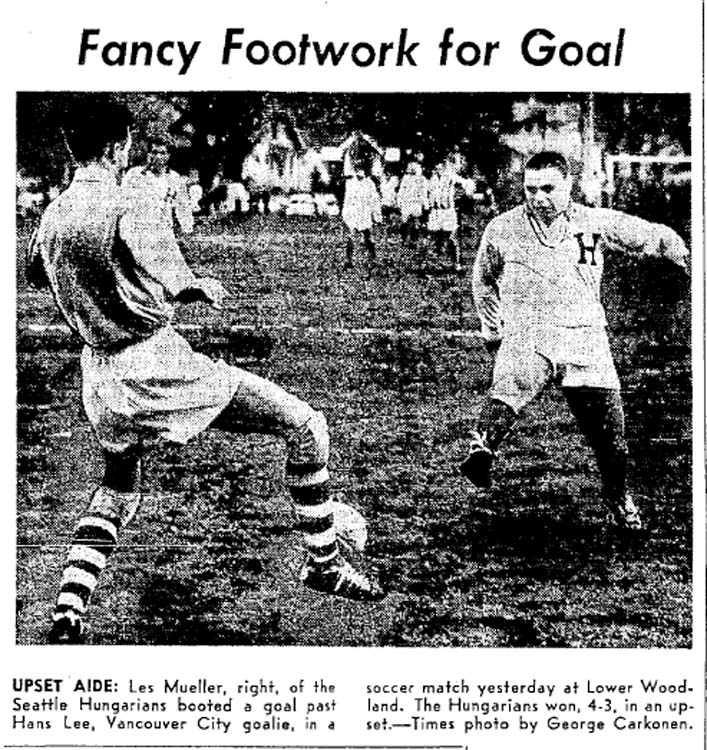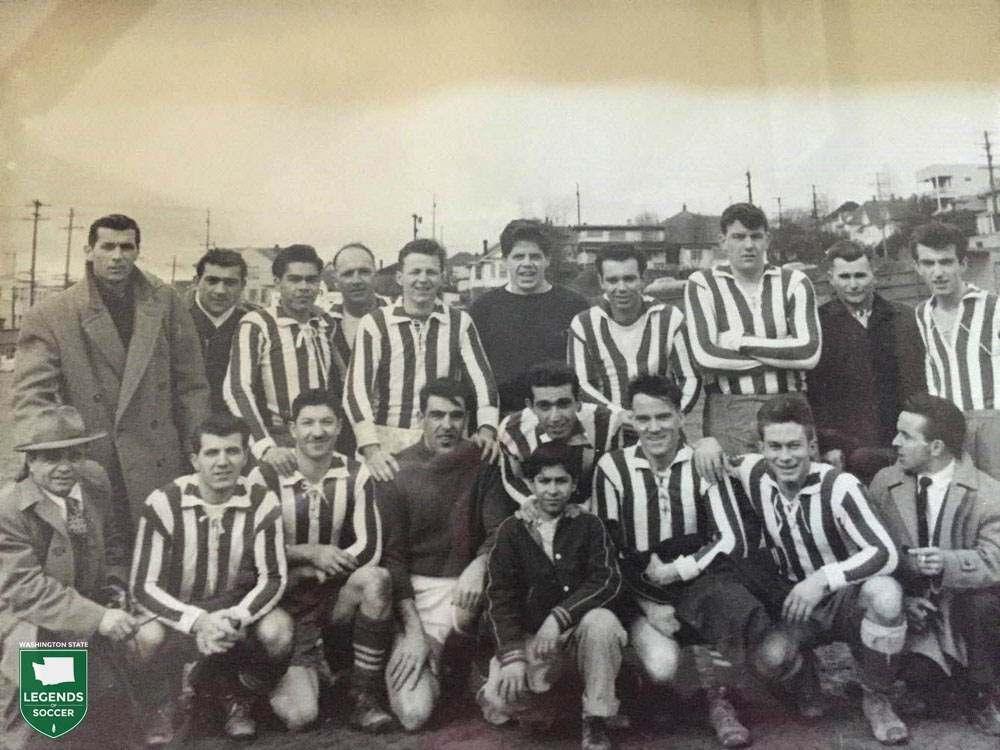1961 – Around the World and Close to Home
Soviet astronaut Yuri Gagarin becomes the first human in outer space, the Berlin Wall closes the border between democratic West Germany and communist East Germany, and John F. Kennedy, at 43, becomes America’ s youngest president. Later, Kennedy Kennedy and Rev. Dr. Martin Luther King Jr. deliver Seattle speeches eight days apart, and elsewhere ground is broken on the Space Needle and the first Burgerville USA opens in Vancouver.
A Hungarian Revolution
Sunday afternoons at Seattle's Woodland Park had always been thick with a stew of western European accents and the sight of a fast, physical and direct style of soccer. Yet as a new decade dawned, a decidedly different and far more powerful brand broke free of the pack. The Hungarian revolution and arrived in full force in Washington.
Three [check] years after entering the state's first division, the Seattle Hungarians began to hit their stride and left the rest of the Northwest in their dust. Funded by Balint Ducz, whose Burien bakery put thousands of pastries on United Airlines flights each day, the Hungarians won the first of their league trophies in early April, then quickly added two more cup victories before May. It was the start of a run that would see out the Sixties.
Unlike many of the Germans, Irish, British, Italian and Scandinavian men of the state's first division who had come to postwar Seattle seeking opportunity to work in aircraft-related industries, the Hungarians were largely refugees. Les Fabri and Mike Kuczi were soldiers who saw their country overrun by Russian army and tanks in the 1956 uprising. They, along with the likes of Les Muller and Lou Vitez, were among the 9 million fleeing the Communists, first into neighboring countries such as Austria and eventually North America. Vitez and Muller came directly to Seattle, Fabri and Kuczi via Vancouver.
At the time of the revolution, Hungary's national team and Budapest Honvéd were regarded as world soccer royalty. The Mighty Magyars won the 1952 Olympic tournament and were runners-up in the '54 World Cup. Honvéd was in the middle of the European Cup play when the revolution was crushed, and many of the players refused to return home, instead finding safe haven in Western Europe.
Across the state, four Hungarian refugees formed the nucleus of the Spokane Spokes of the Western International League. Although those who landed in Seattle were not world-class, several were proven professionals or members of the vaunted Hungarian army selects. In either case, they were the most talented players ever to kick leather around Lower Woodland. In fact, Seattle's soccer playground was among the first stops for the first wave of Hungarian players arriving in late 1956. Soon they were joining up with existing first division sides, however it was not until autumn of 1958 that the Hungarians formed their own club. Once Fabri and Kuczi joined the fold, the pieces had all fallen into place and the trophy hunting began in earnest.
After a second-place showing in the league's first half, the Magyars ran amuck. Displaying an audacious attack and deadly finishing, they averaged more than six goals per game in the second half, going 7-0-1. Loyal Realty managed to battle the Hungarians on even terms for 120 minutes of the final, forcing a replay. But the Hungarians won that and the knockout cup the following week before brushing aside Portland's German Club, 5-3, for supremacy in the Northwest.
 1960
1960

